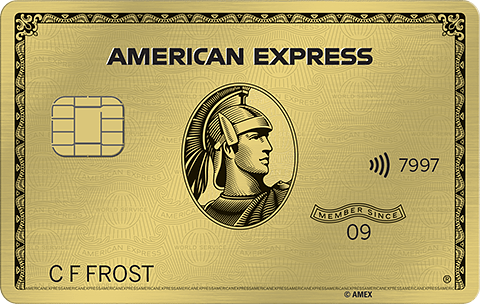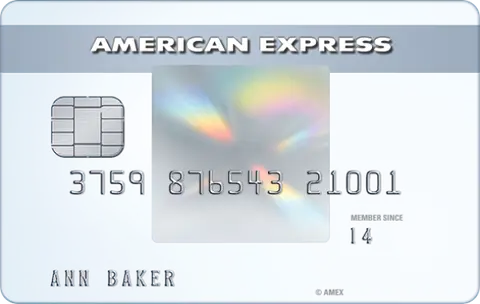- myFICO® Forums
- Types of Credit
- Mortgage Loans
- Pre-qualification and Pre-approval
- Subscribe to RSS Feed
- Mark Topic as New
- Mark Topic as Read
- Float this Topic for Current User
- Bookmark
- Subscribe
- Mute
- Printer Friendly Page
Pre-qualification and Pre-approval
Is your credit card giving you the perks you want?
Browse credit cards from a variety of issuers to see if there's a better card for you.
- Mark as New
- Bookmark
- Subscribe
- Mute
- Subscribe to RSS Feed
- Permalink
- Report Inappropriate Content
Pre-qualification and Pre-approval
I received a pre-qualification letter from my lender. A loan officer pulled my credit and reviewed my finances before issuing it.
My real estate agent is telling me that I'll need a pre-approval, not just a pre-qualification, before submitting any offers.
This puzzles my loan officer. She has never heard of needing a pre-approval (I.e. a loan amount approved through the underwriting process without a specific property) just to make an offer.
I suspect that the real estate agent and loan officer just attach different meanings to "pre-qualification" and "pre-approval". I hope that an explanation of the lender's meaning of "pre-qualification" will suffice for the real estate agent so we can proceed in the homebuying process.
Do these terms have any consensus meaning in real estate? Does their meaning depend on the person? Do real estate agents actually expect a fully underwritten loan now to even make an offer?
- Mark as New
- Bookmark
- Subscribe
- Mute
- Subscribe to RSS Feed
- Permalink
- Report Inappropriate Content
Re: Pre-qualification and Pre-approval
I found this on Zillow's web page. I hope this may help you.
As you prepare to finance a new home, chances are you’ve come across mortgage pre-approval, mortgage pre-qualification, or possibly even both. So what does it mean to get pre-approved vs. get pre-qualified for a mortgage, and what’s the difference between the two? Let’s take a look.
The Similarities of Pre-Approval and Pre-Qualification
Mortgage pre-approval and mortgage pre-qualification have the same great benefits for anyone considering purchasing a home with a mortgage:
- Both can help estimate the loan amount that you will likely qualify for. This can help you save time by starting your home search by looking only at homes that you know will fit in your budget. And it will also prevent the frustration of finding out that the house you wanted to buy is actually out of your budget.
- Regardless of whether you have a pre-approval letter or a pre-qualification letter, both can help show sellers that you’re a serious contender when submitting your offer. For a seller to confidently accept your offer, they’ll want to know that you’ll be approved for a mortgage and the home sale will close. A pre-approval letter or a pre-qualification letter can help demonstrate that you have a good chance of being approved for a mortgage for the amount that you’ve offered on the home.
- Many sellers will require a pre-approval or pre-qualification letter if you’re planning to get a mortgage. If it’s not required, a pre-approval letter or pre-qualification letter may help your offer stand out. This can be especially helpful in competitive real estate markets.
In addition to the benefits mentioned above, it’s important to remember that neither pre-approval nor pre-qualification is a guarantee that you’ll receive a loan from the lender. You are also not obligated to get a mortgage form the lender who pre-approved or pre-qualified you. While many home shoppers opt to apply for a mortgage with the lender who pre-qualified or pre-approved them, you should always shop around before applying for a mortgage.
The Differences between Pre-Approval and Pre-Qualification
According to the Consumer Finance Protection Bureau, there is often not a lot of difference between pre-approval and pre-qualification. Sometimes, lenders use the terms “pre-qualification” and “pre-approval” interchangeably. And different lenders might have different definitions for each. But generally, here’s how the two may differ.
Pre-qualification is often seen as the first step in the mortgage process, and pre-approval is the next step. With pre-qualification, you’ll supply an overview of your financial history to the lender, including income, assets, debts, and credit score. The lender will review this information to give you an estimate of what you would qualify for. Mortgage pre-qualification doesn’t always require documentation of your financial history; it can often be self-reported. Mortgage pre-approval is very similar, but it usually requires documentation and verification of your income, assets, and debts. And it will often require a credit check, which will result in a hard inquiry on your credit report.
Which One Should You Get?
Since the terms “mortgage pre-approval” and “mortgage pre-qualification” are often used interchangeably, it can be hard to know which one you need. It really depends on how your lender defines the service, if you want a credit check or not, and what real estate market you are in. Be sure to ask your lender exactly how he or she defines “pre-approval” or “pre-qualification” (and if it requires a credit check). Then find out from your real estate agent which version has more credibility in your market. That way, when it comes time to make an offer, you’ll have what you need to give sellers confidence that you’ll be approved for a loan.
- Mark as New
- Bookmark
- Subscribe
- Mute
- Subscribe to RSS Feed
- Permalink
- Report Inappropriate Content
- Mark as New
- Bookmark
- Subscribe
- Mute
- Subscribe to RSS Feed
- Permalink
- Report Inappropriate Content
Re: Pre-qualification and Pre-approval
Pre-approved usually means your loan has been reviewed by the underwriter who is in charge of issuing the loan approval. Pre-qualified is your loan officer and/or their processor reviewing your loan and determining it has a high likelihood of getting approved by underwriting. If your scenario is straightforward and you are well qualified then a pre-qualification should suffice, but there are situations where getting pre-approved can still become advantageous. If your situation is complex and/or your loan officer feels there is a chance underwriting may not approve the loan then getting pre-approved could relieve a lot of anxiety about the process. In either situation getting pre-approved can cut down on the total time it takes a lender to complete the loan process since the initial review has already been completed, it gives you further insight on what the lender will require in order to issue final approval so you can start working on those items before your offer is accepted, and it can assure the seller & their listing agent that your financing is all squared away and it should just come down to the appraisal & title work coming in as expected.
If a real estate agent asked for a pre-approval rather than a pre-qualification you should ask why, often it'll be to improve your chances of a seller accepting your offer which right now most people need every advantage they can get.
Mortgage Broker located in Southern California and lending in all 50 states
Reach out anytime!


















